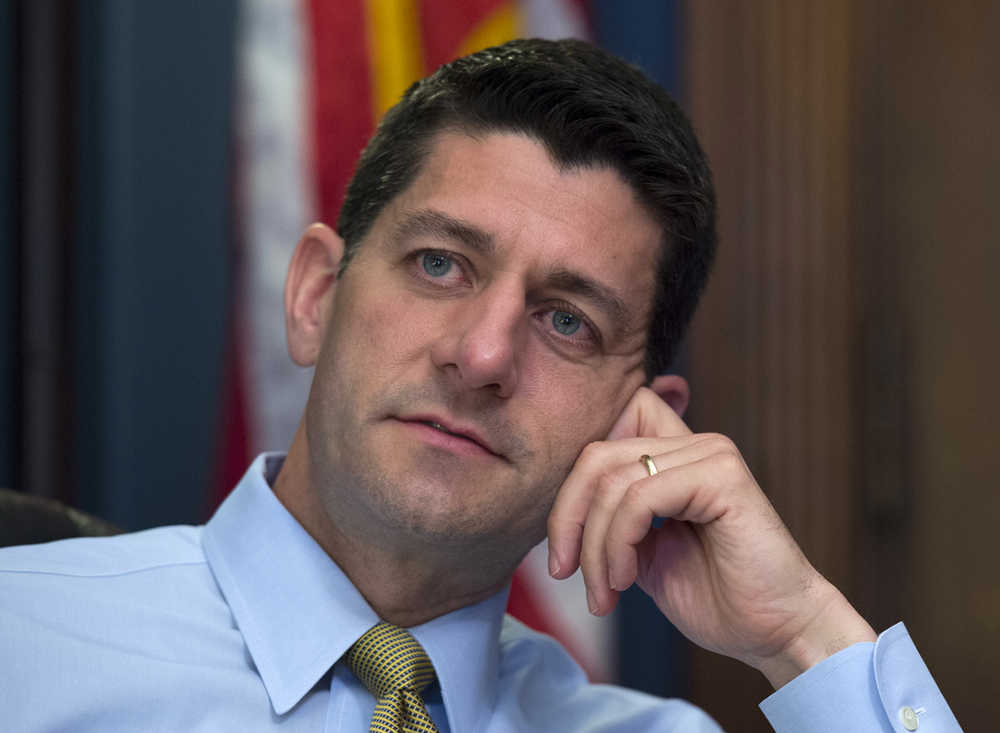WASHINGTON — House Republicans return to Washington this week to confront a nearly unprecedented leadership crisis, looming budget deadlines and a deeply uncertain future.
Attention is focused on Wisconsin Rep. Paul Ryan, the GOP’s 2012 vice presidential nominee, who is under pressure from party leaders to run for House speaker — a job he repeatedly has made clear he does not want.
Even if Ryan yields to his colleagues’ pleas, conservatives are increasingly serving notice that the 45-year-old House Ways and Means Committee chairman will have to audition for the job just like anyone else, despite widespread support.
That suggests that the same hard-liners who pushed current Speaker John Boehner, R-Ohio, to announce his resignation and scared off his heir apparent, Majority Leader Kevin McCarthy, R-Calif., could throw up obstacles to Ryan, too.
It also leaves any resolution unclear for a party that seems nearly irreparably divided. More than a half-dozen lawmakers are considering running for speaker if Ryan does not, even as hard-liners warn that Boehner risks more rebellions if he stays on past his planned departure date of Oct. 29.
“John is a lame duck. There was a reason John announced his resignation,” said Rep. Mick Mulvaney of South Carolina, a leader of the House Freedom Caucus. “I think Paul does have the credibility across the conference to be able to unite us, but to say he’s the only one I think is hyperbole.”
“It’s not just the conservatives Paul would have to convince,” Mulvaney added. “Everybody’s interested in a new type of leadership.”
The unrest in Congress coincides with a chaotic GOP presidential primary dominated by candidates far afield from the political establishment, as Republican voters push for action, change and confrontation with Obama.
It may be difficult for any House speaker to satisfy those demands, with Obama still in the White House and minority Democrats in the Senate using that chamber’s rules to bottle-up legislation passed by the majority-rule House.
The job of speaker “would more or less fall in the category of thankless task, because people are not going to be in agreement with anything that a speaker does,” said Rep. Marsha Blackburn of Tennessee, one of the lawmakers who says she is being encouraged to consider the job.
For Ryan, who may harbor presidential ambitions, the job is unlikely to be the best stepping-stone. Only four speakers or former speakers captured their parties’ presidential nominations, and just one won the White House — former Speaker James Polk in 1844.
Already Ryan is under attack from some conservatives inside and outside Congress for his support of comprehensive immigration legislation.
Rep. Steve King of Iowa, Congress’ leading immigration hard-liner, said Ryan would be unlikely to win support from House conservatives opposed to any “pro-amnesty” politician.
“There’s definitely an undercurrent of concern among conservatives in the House that make it unlikely they would step forward and support Paul Ryan, especially in a bloc,” King said.
Last week, King circulated a letter to fellow House Republicans aimed at building support for Rep. Daniel Webster of Florida, the preferred candidate of the Freedom Caucus and other conservative groups in the House, including the Conservative Opportunity Society, which King heads.
“Other than one candidate dropping out, nothing has changed in the race for speaker,” King’s letter said. “The best candidate, Daniel Webster, is gaining momentum for his demonstrated leadership.”

